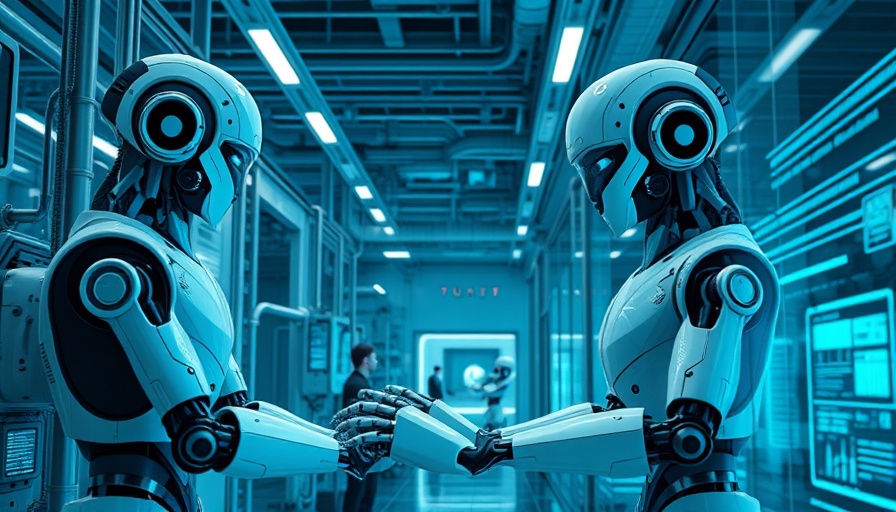
The Urgent Need for Advanced Automation in Manufacturing
The manufacturing industry is currently facing significant challenges, including geopolitical instability, rising costs, and labor shortages. With over 500,000 unfilled manufacturing jobs in the U.S. alone, businesses are compelled to find innovative solutions. The urgency for transformation in the sector is underscored by environmental concerns and the need for sustainability, prompting a collective reevaluation of industry practices.
Convergence of Technologies: A New Dawn for Manufacturing
Advanced automation, enabled by the rapid integration of technologies such as industrial AI, IoT, and digital twins, promises a brighter future for manufacturers. These innovative solutions not only enhance operational efficiency but also contribute to environmental sustainability. For instance, AI-driven predictive maintenance has the potential to reduce downtime by up to 50%, drastically improving productivity. Furthermore, a significant 77% of industry leaders believe that digital twin technology could lead to an average 15% decrease in carbon emissions.
Overcoming Barriers to Adoption
Despite the exciting prospects, widespread adoption of these advanced technologies remains limited. John Hart, a notable professor in mechanical engineering, notes that the barriers extend beyond technological capabilities. Small to medium enterprises and older manufacturing facilities grapple with financial risks and workforce readiness. Strategies to mitigate these obstacles are critical for fostering an environment conducive to innovation.
The Role of Government in Shaping the Future
To support the transition towards advanced automation, governments have begun implementing policies that promote high-tech manufacturing. These initiatives aim to reduce dependency on fragile global supply chains and encourage critical production to be localized. Such political endorsements signal a pivotal moment of opportunity for the industry, aligning technological advancements with governmental support to propel manufacturing into the future.
Preparing for a 'Next-Level' Industrial Landscape
In conclusion, the intersection of advanced automation and necessary policy change presents a crucial chance for renewal in the manufacturing sector. As companies face external pressures, such as climate change and economic uncertainty, the integration of advanced technologies coupled with strategic governmental incentives is more important than ever. Industries that adapt may not only survive but thrive in an increasingly dynamic landscape.
 Add Row
Add Row  Add
Add 




Write A Comment